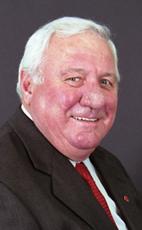Mr. Speaker, it is an honour for me to participate in the debate however briefly.
I will address in a few words the concerns that my friend across the way has expressed about intent, painting a situation that is not real. The difficulty with which I would like to challenge him is this. If we were to introduce the kind of clause that he would like in the bill, we would find ourselves unable to prosecute virtually anything that takes place. There is a discretionary aspect. I am sure if my friend runs over a burrowing owl with a mower or a peregrine falcon with his car, there will be no chance of him being charged. He can rest easy with that.
I want to ensure that the landowners of Canada, rural Canadians are not forgotten in this debate. A lot of debate that takes place is at the urgings of well meaning urban Canada. Somehow rural Canada is in danger of getting the short end, so I want to speak for the country people in this land. These are the people I have had in mind throughout the entire deliberations of the standing committee. As a committee member I voted against several of the amendments that ultimately passed because I knew they jeopardized our good relations and working partnerships with rural Canadians.
Rural Canadians are the people who are already living the story behind the proposed act. These are the people, when all is said and done, who will make the act work. Critical habitat is often on the land of rural Canadians and we must never forget that. We should not forget that the co-operative approach, especially for rural Canadians, has already yielded success. Their stewardship actions for generations are living proof of their commitment. If we want to stop the destruction and degradation of habitat, we must do it together, not with the heavy hand of the law.
The bill is about co-operation among provinces, territories, private landowners, conservationists, local authorities, aboriginal people, farmers, fishermen, ranchers and voluntary organizations. I supported the standing committee amendment to include the protection of the critical habitat of extirpated species, species that still exist but whose natural habitat is gone, and in addition, aquatic species and migratory birds, protected by the Migratory Birds Convention Act and the critical habitat regime within federal jurisdiction.
The federal government is best placed to offer this protection as it already does this kind of work under the Fisheries Act and Migratory Birds Convention Act. Canadians expect this to be the level of government that helps them protect these species. However I had to vote against other amendments that significantly undermined how we deliver this protection. I voted against the amendment that would require any person to obtain a permit or licence to engage in an activity that may adversely affect any part of the critical habitat of listed species under federal jurisdiction as soon as habitat is identified by scientists in action plans.
The new general prohibition runs contrary to everything for which Bill C-5 stands. It removes government accountability for decisions that may have social and economic impact. It removes the opportunity for Canadians to first try to protect habitat through voluntary stewardship action. It tries to coerce Canadians into compliance and relies on enforcement to protect species. It makes the legislation much more difficult for Canadians to understand because adversely affected critical habitat is a lot less obvious than destroying critical habitat.
In essence, it would destroy the co-operative and accountable approach of the bill and replace it with a coercive approach. In the long run this will not work. Laws will not protect species; people will. We must do all we can to help people protect species. We must remember that prohibitions are important as the backbone of legislation.
The first opportunity for all of us to succeed at protecting species and habitat is to work together as active stewards. Let us think outside the box of doing it because the law says so. Species and Canadians deserve our co-operation.
The bill is the third manifestation of legislation that has been in the works off and on for about eight years. On the positive side it has given us the opportunity to look at other legislation. We have found that command and control does not work.
The American legislation is nicely worded, but it has resulted in litigation to such an extent that I am sure the minister is asking himself where he wants to spend his budget. Does he want to spend it on litigation or on programs and recovery processes that will help to restore endangered species?
This is a new direction that the government has taken. I want to reassure those who are bound and determined to follow a command and control approach that there is a five year review clause in the bill that would allow us to look at the legislation and ask: what did we do right and what did we do wrong? How can we clean it up and make it work? Surely, that is a more progressive approach than simply coming down with a hammer on Canadians.
Maybe in five years we could show what Ducks Unlimited have done, what prairie farmers have done and what people in rural Canada have done. Perhaps by that time urban Canada will understand that the majority of endangered species are in the water and not on land. In that respect I want to tell everybody in urban Canada that every time they flush a toilet and every time industrial waste goes into the Great Lakes or water bodies of any kind, they have to bear equal responsibility. We want them to come along with us too.
We should get over the command and control idea and move into a co-operative spirit that will result in a positive future for endangered species.

